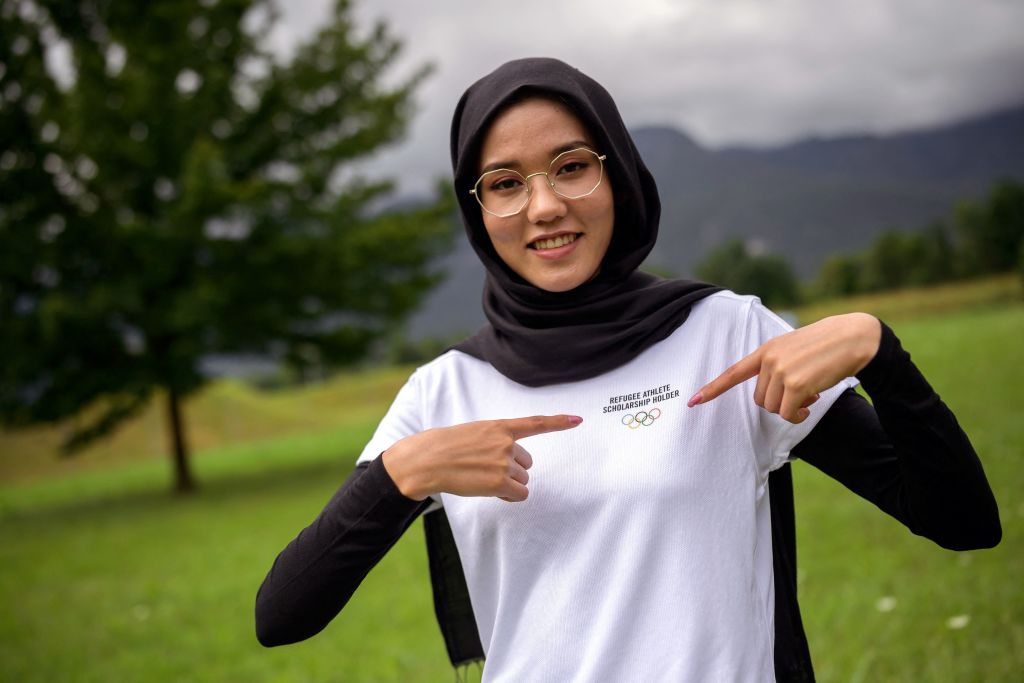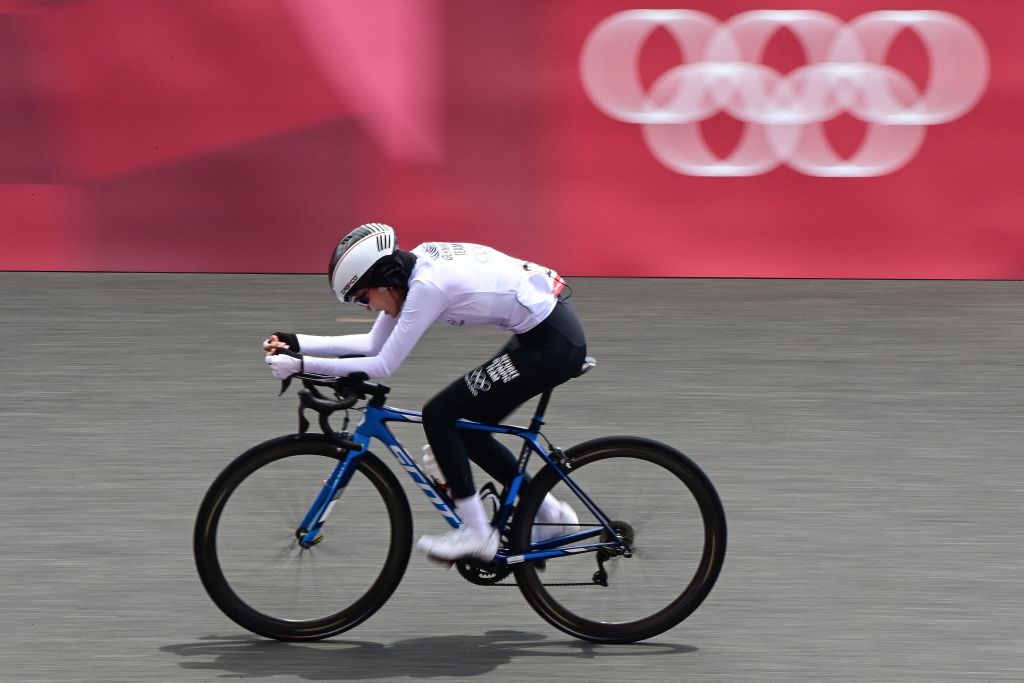Masomah Ali Zada brings message of hope for women’s rights and refugees at Tokyo Olympics
'It's my responsibility to try to work for the rights of women in Afghanistan and for all countries where people think that women don't have rights' says Afghan cyclist

Afghanistan’s Masomah Ali Zada competed in her first-ever Olympic Games with the Refugee Olympic Team in the women’s individual time trial on Wednesday.
It was an inspirational feat indicative of the spirit of the Games, and more important than winning a medal, as Ali Zada’s participation sent a strong message for women’s rights and for hope and peace to refugees around the world.
"It was so, so good, my first time trial, my first Olympic Games. As a first experience, I'm so happy with it because I worked for it and I tried to use all the sacrifice from several months. I don't have any regrets," Ali Zada said following her completion of the time trial event at the Fuji International Speedway.
"I'm so happy to represent the Refugee Olympic Team because I will send a message of hope and peace for 82 million people who are obliged to leave their country because of different reasons," Ali Zada said.
"And also I'm here to represent the rights of women in Afghanistan and for all countries like Afghanistan, where people think that women don't have rights. So I'm here for two objectives - the rights of women and also for the refugees."
The International Olympic Committee (IOC) announced in June the 29 athletes selected to the Refugee Olympic Team bound for the Tokyo Olympics. Ali Zada competed in the women's time trial and Ahmad Badreddin Wais from Syria competed in the men’s time trial.
Ali Zada and her sister, Zahra, were featured in a 2016 documentary on French TV channel Arte called Les Petites Reines de Kaboul (The Little Queens of Kabul) that resonated with people around the world. The sisters were part of Afghanistan's first national women's cycling team and the film documented the challenges of cycling as a female in Afghanistan.
Get The Leadout Newsletter
The latest race content, interviews, features, reviews and expert buying guides, direct to your inbox!
Ali Zada revealed some of her experiences as a woman riding a bike in her country and said that she was threatened, insulted and had stones thrown at her while cycling. She said these assaults were done to try to stop her from riding a bike.
"I'm here to present the rights of the women of Afghanistan. So I'm from Afghanistan, but I represent the Refugee Olympic Team and both are important to me in my heart and my head," Ali Zada.
"It's my responsibility to try to work for the rights of women in Afghanistan and also for all the countries where people think that women don't have rights, and also to send a message of hope and peace for all the refugees around the world."

Ali Zada and her sister, along with their parents and three brothers, have since settled as refugees in France under a humanitarian visa, and submitted an asylum application that was accepted in 2017.
The sisters are enrolled and study at the University of Lille and Masomah was invited on the IOC Refugee Athlete Scholarship programme that was launched ahead of the 2016 Olympic Games in Rio de Janeiro.
"When I started cycling, some people in Afghanistan did not agree with it because it's a new thing for the people to see a girl who rides a bike. I could understand why they don't want to accept it," Ali Zada said after the time trial in Tokyo.
"Even here [at the Tokyo Olympics], in the hotel with the other cyclists, they look at me strangely. I think they've never seen a girl with a scarf on a bicycle. But in Afghanistan, I'm sure if they see regularly a woman on a bike, they will accept it."
Ali Zada said that her father has supported her in cycling from the beginning and that he sent her a message ahead of the Olympic time trial, where she was the first rider off the starting ramp at the Fuji International Speedway.
"My father sent me a message this morning. When I was in Afghanistan, he was the only one who always supported me. Even when I wanted to stop, he pushed me – 'No, you have to continue, you cannot stop it, you have to continue until the end.'" Ali Zada said.
"So, he sent me a message this morning and said, 'Do your best.' I hope that he will be happy."

Kirsten Frattini is the Deputy Editor of Cyclingnews, overseeing the global racing content plan.
Kirsten has a background in Kinesiology and Health Science. She has been involved in cycling from the community and grassroots level to professional cycling's biggest races, reporting on the WorldTour, Spring Classics, Tours de France, World Championships and Olympic Games.
She began her sports journalism career with Cyclingnews as a North American Correspondent in 2006. In 2018, Kirsten became Women's Editor – overseeing the content strategy, race coverage and growth of women's professional cycling – before becoming Deputy Editor in 2023.